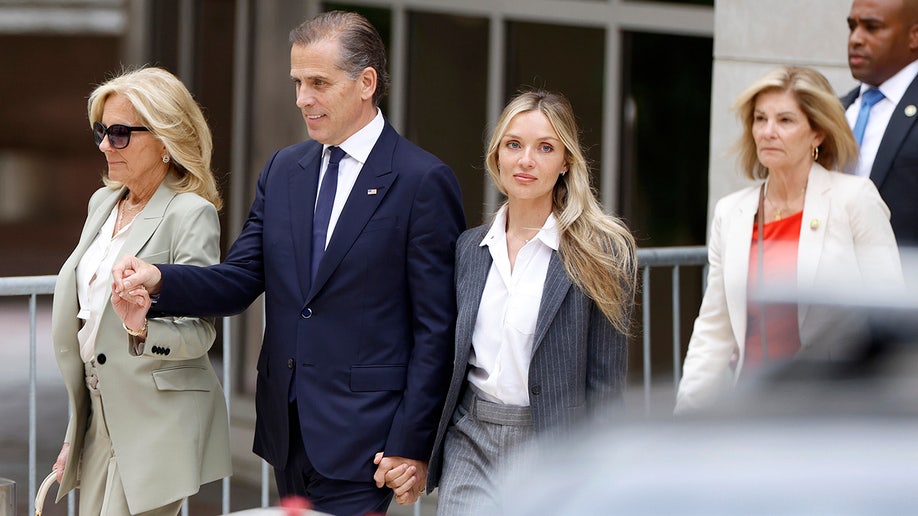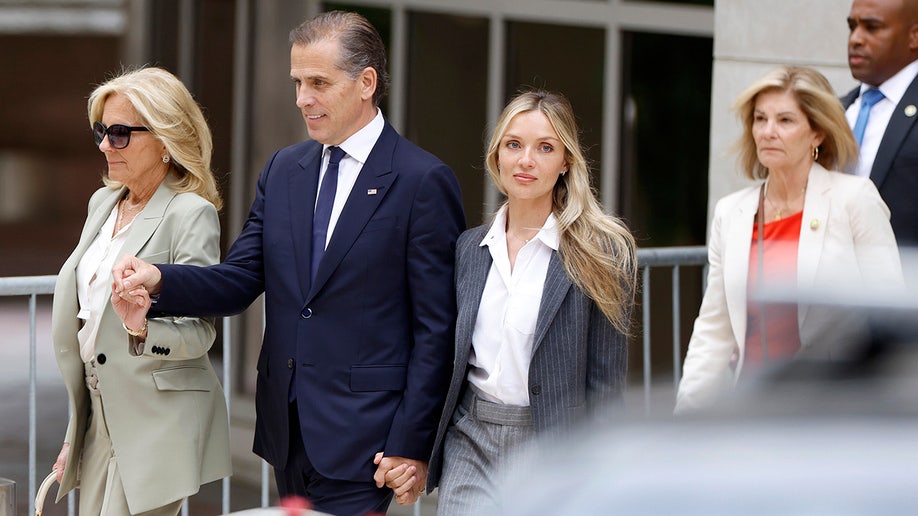
Hunter Biden guilty on all counts. What we just learned about smoke, mirrors and privilege

The facts were simple, the law was clear, and the evidence of guilt can only be described as overwhelming.
The only surprise is that it took jurors more than five minutes to convict Hunter Biden on all three gun charges that he faced in a federal courtroom in Wilmington, Delaware. In sports vernacular, the case was a slam dunk.
It did not matter that Hunter is the son of the president of the United States. Or that the first lady Jill Biden, was a hovering presence in the courtroom from day one. Or that the accused was represented by one of America’s premiere trial lawyers.
In the end, there was no defending the indefensible. But that did not stop Hunter’s attorney from trying. Lawyer extraordinaire, Abbe Lowell, employed every slight-of-hand and clever feint to cast reasonable doubt. He parsed the meaning of words (past tense vs. present tense) like a pedantic schoolteacher conjugating irregular verbs.
The primary defense was a near-comical assault on credulity. That is, Hunter was a typical drug addict who was so addled that he convinced himself he was not, and he was therefore incapable of knowingly lying when he signed a federal form affirming that he was not ‘an unlawful user of, or addicted to,’ illegal drugs.
Got that? Internal denial is an external excuse for criminality.
That dumbfounding argument led Lowell to literally claim that his client was not ‘conscious and aware,’ as if that’s the kind of person we want purchasing a deadly weapon while tooling around in his daddy’s Caddy.
Makes you feel all warm, fuzzy and safe, doesn’t it?
Beyond blatantly lying about his addiction, Hunter was also charged with unlawfully possessing a gun while abusing drugs. Lowell cavalierly dismissed the merits of this felony count by informing jurors that there were no witnesses, photos or videos of his client actually doing drugs during the 11 days in October 2018 that he owned the .38-caliber Colt revolver before it was tossed in a dumpster by one of his many girlfriends – his deceased brother’s widow.
Granted, the absence of photographs is quite remarkable, inasmuch as Hunter had a freakish proclivity for snapping selfies while smoking crack cocaine. Indeed, there is one notorious image of him found on his infamous laptop with a crack pipe hanging from his mouth. It was taken just four days before the gun purchase. But wait… that was staged, the defense suggested, and no other such visual evidence came to light during the relevant 11-day period.
True enough. However, there are several damning texts to suspected drug dealers the days before he bought the gun and the day after. The messages happen to coincide with large cash withdrawals from ATMs and clandestine meetings arranged by Hunter at what appears to have been his favorite narcotics rendezvous, 7-Eleven. It adds a whole new dimension to the term ‘convenience store.’
Hunter’s real defense was a two-fold strategy written nowhere in the law books but sometimes plied as a desperate tactic of last resort: sympathy for a recovering drug addict and jury nullification.
Yet, Lowell glossed nimbly over that part of the story. Maybe jurors were left to wonder whether his client was frittering away thousands of dollars by splurging on Pina Colada Slurpees at his preferred haunt.
The incessant trope during the defense closing argument was that Hunter did not appear to be high on drugs the day he bought the gun. Under cross-examination, the seller testified that Hunter exhibited no signs of being under the influence.
There are two problems with that clever artifice.
First, witnesses stated that Hunter had an uncanny ability to act normal even after inhaling copious quantities of crack. Second, it is largely irrelevant. Federal Judge Maryellen Noreika ruled that prosecutors needed only prove illegal drug use during a general time frame surrounding the purchase, not solely the day that the handgun was acquired.
That didn’t stop the defense from warning the jury that prosecutors were trying to ‘dupe them’ with their legal theory of the case. Lowell dubbed it a ‘magician’s trick’ dependent on ‘suspicion or conjecture.’ His claim conveniently ignored the lawyer’s own chicanery when he declared that Hunter fabricated a story of his drug abuse to evade seeing his paramour right after he bought the gun.
In the history of girlfriend avoidance, that’s gotta be one for the record books.
Smoke and mirrors aside, Hunter’s real defense was a two-fold strategy written nowhere in the law books but sometimes plied as a desperate tactic of last resort: sympathy for a recovering drug addict and jury nullification. The former is self-evident, while the latter is far more subtle.
When Lowell pleaded with the jury that ‘it’s time to end this case,’ what he was really telling them was to acquit his client by ignoring the facts and disregarding the law. It is well established that jurors have no right to negate or nullify the law, but occasionally they do. They’re not required to state their reasons for a ‘not guilty’ verdict, which allows them to do as they please. If they like the defendant and/or dislike the law, they can set him free.
In response, the prosecution set the record straight during its summation. Jurors were reminded that Hunter Biden was not charged with being a drug addict, even though the defense sought to portray it that way. No, he was charged with lying on a federal gun form and illegally possessing a firearm. It was a choice, not a condition. Hunter deliberately elected to lie and break the law.
During the course of the trial, jurors could not help but take note of Jill Biden and a phalanx of Bidens sitting directly behind the accused. The family reunion was a visual reminder to the people sitting in judgment that they reside in the Bidens’ personal fiefdom. Would they have the audacity to convict one of their own in the presence of the great matriarch and her brood?
In a poignant moment, prosecutor Leo Wise offered a rejoinder to this obvious effort to unduly influence the jury. He gestured in the family’s direction and calmly explained, ‘The people sitting in the gallery are not evidence. You may recognize them from the news… but respectfully, none of that matters.’ Indeed, it did not.
Wise then repeated the well-oiled legal idiom that President Biden invoked a week earlier when a jury in New York handed down a very different verdict in the trial of former President Donald Trump. ‘No one is above the law.’
As it turns out, even a privileged and coddled Biden must abide by the rule of law.



